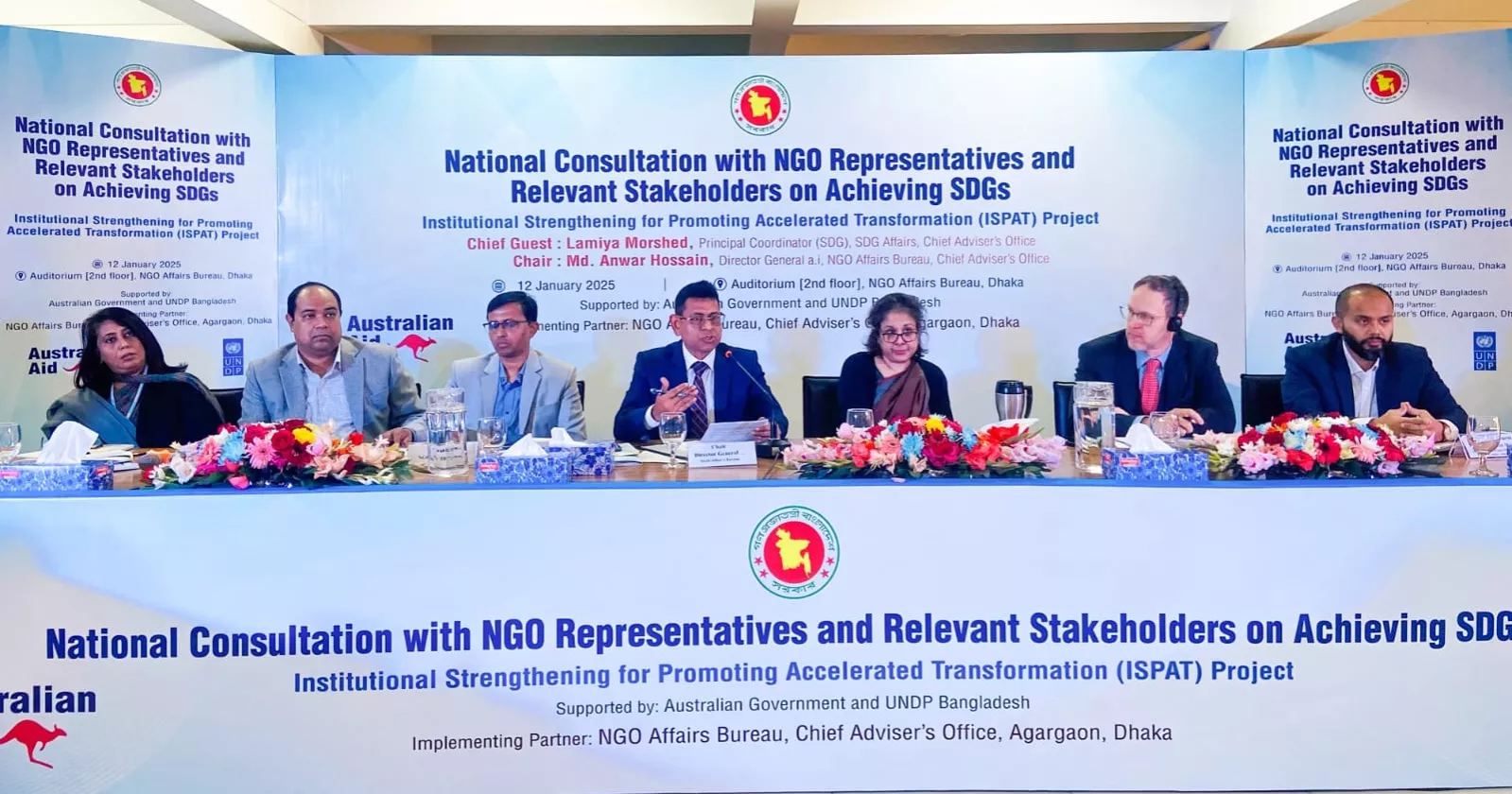Staff Correspondent
Published:2025-01-13 08:09:17 BdST
Enhancing NGO capacities essential to advancing SDGs: Speakers
Strengthening the capacities of non-governmental organisations (NGOs) is vital to addressing local challenges and advancing progress on the Sustainable Development Goals (SDGs), said speakers at a stakeholders' event on Sunday.
The seminar was organised by the United Nations Development Programme (UNDP) and the NGO Affairs Bureau as part of the Institutional Strengthening for Promoting Accelerated Transformation (ISPAT) project, a joint initiative by NGOAB, UNDP Bangladesh, and the Australian High Commission.
The event was held at the NGO Affairs Bureau Conference Room in Dhaka with participants from the representatives of NGOs, development partners, and relevant stakeholders on achieving SDGs, read a press release.
Launched in January 2024, the three-year ISPAT project aims to streamline NGO services, build institutional and professional capacity, and foster policy reforms to enable efficient, gender-responsive service delivery.
NGO leaders and development partners gathered at the event to share insights and explore strategies for sustainable development.
Speaking as the chief guest, Lamiya Morshed, principal coordinator for the SDGs at the Chief Adviser’s Office, said, "Bangladesh faces several challenges in achieving the Sustainable Development Goals (SDGs). Overcoming these obstacles requires collective effort and collaboration."
Highlighting the transformative potential of ISPAT, UNDP Resident Representative Stefan Liller said, "Bangladesh's development challenges are increasingly localised, requiring innovative, context-specific solutions tailored to community needs. NGOs play a vital role in this effort through their grassroots presence and deep local understanding.
"As the SDG integrator of the UN system, UNDP is committed to fostering partnerships that bridge gaps and amplify development efforts. The ISPAT project, with the generous support of the Australian government, is a significant step towards strengthening NGO capacities and accelerating transformative change for a sustainable future."
The ISPAT project employs a three-pronged approach, digital transformation, capacity building, and policy reform, envisioning a more inclusive and impactful development landscape in Bangladesh.
Badiul Alam Majumder, chairman of the Election Reform Commission, Md Anwar Hossain, director general (acting), NGO Affairs Bureau, Sheela Tasneem Haq, senior governance specialist, UNDP, Ashif Mahmud, director, NGO Affairs Bureau, Asif Kashem, senior program manager at the Australian High Commission in Dhaka, Mushtanjida Pervin, deputy director, NGOAB and focal person of the ISPAT Project, and Azizul Haque Sarder, UNDP, addressed, among others.
Representatives from various NGOs and civil society organisations were also present.
Unauthorized use or reproduction of The Finance Today content for commercial purposes is strictly prohibited.


